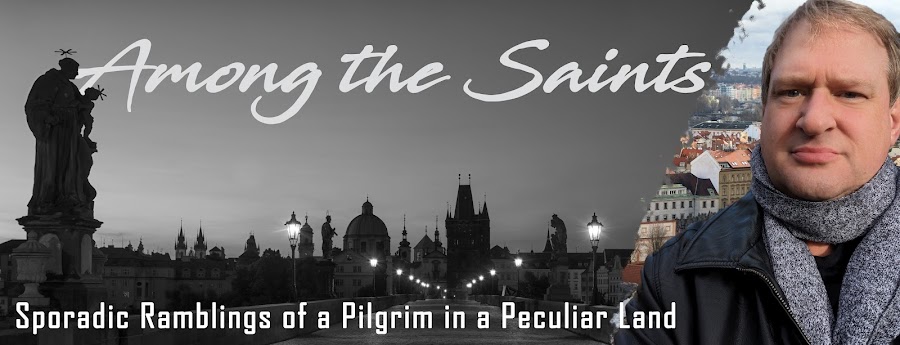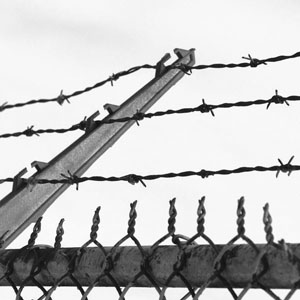Anyway, I start this with no particular aim or direction, and I don't know if it will amount to anything. But for what it's worth, here are some of the random, seemingly unrelated things I learned on my Summer Vacation, in no particular order.
1. Adults don't get summer vacation. I sort of miss that unbridled excitement I felt as a kid on the last day of school, facing a long summer filled with possibilities. Somewhere along the line, however, summer just became those months when the power bill goes up mysteriously. While summer vacation is kind of a thing of the past, there is, very occasionally, a vacation in summer. I did take one of those. I spent a week with my parents and some family friends in San Diego in June, and realized why there are 16 bazillion people living in San Diego. The weather is perfect. I don't mean nice, I mean perfect. While we were there, they had these heat wave weather maps on the news, in which the entirety of North America was engulfed in shades of fire-engine apocalyptic red. San Diego, on the other hand, was an almost supernaturally-protected tiny little oasis of greenish-yellow low-70s. True, if you go a little inland, it does warm up a bit, but you discover the Southern California that you'd always assumed was mythological--rolling hills of vineyards and groves of citrus and avocado, dotted with pleasant little farming communities with fruit stands and upscale restaurants. I lived a while in Southern California, and somehow I had missed that part of it. We went wine tasting in the Temecula area one day, and was struck by the beauty of the region--it rivaled not just Tuscany, but those romantic notions of it you see in those dreamy Renaissance paintings. But of course the downside to doing that is that it cost me a week or two of moping about, lamenting the fact that I don't get to spend my late afternoons strolling through my formal garden lined with Italian cypress and olive trees, gazing blissfully down upon the vineyard rising up to meet my feet, while holding a couple ounces of of inky petit verdot and swirling it about in some oversized stemware, while the staff prepare the baked brie, salame al tartufo piemonte, and dried fruit appetizers for a sunset soiree with friends. Sometimes life just plain sucks.
2. Ten years is a heck of a long time. In July I celebrated my tenth anniversary of having arrived on the turbulent shores of Utah. Ten years. 3652 days since that moment I first set foot in Utah one stormy afternoon. My first footfall in Utah (at least as an incoming resident) was at the Four Corners monument. I'd always wanted to visit Four Corners, and it was on the way (I was driving across the country from Miami, Florida), so I decided to check it out. I had imagined beforehand it would be some sort of meaningful, almost ceremonial event--that moment of placing my foot into what was to be my new home state. I arrived at the monument, parked, got out of the car, went over and took pictures of the monument, which is basically a small concrete plaza with the state lines etched in, converging on a small survey marker. I snapped a few pictures of the marker where the four states converged, and as I walked through Arizona and New Mexico to go back to my car (which was parked somewhere in Colorado), I realized I hadn't actually done what I came to do--set foot in Utah properly. So I turned around, walked back to the plaza a little sheepishly, and ceremoniously stomped on the survey marker like I was squashing a bug. A few onlookers laughed at my little antic, and I was suddenly embarrassed. But no matter. I was in Utah. (And Colorado. And New Mexico. And Arizona.) Anyway, it's been an eventful ten years, an adventure with its fair share of rocky roads and strange detours, but it's apparently my life right now.
3. A Saturday with little to do and 54 episodes of Breaking Bad available on Netflix Streaming is a very, very dangerous combination. If you've not seen Breaking Bad, it's a gripping TV series about a brilliant but unassuming chemistry teacher who decides to start making methamphetamine, ostensibly to make sure his family is provided for in the wake of a terminal cancer diagnosis. Tightly written, fast-paced, well-acted, and as addictive as the crystal meth that he cooks. It's been hailed as one of the best TV dramas out there, and I can't argue with that. But I've never been so anxious for a great TV series to end already. It's got its gruesome moments, but the real horror is watching the downward spiral of a guy who starts off basically as a decent fellow with good intentions, and winds up a ruthless, soulless monster. A protagonist that so completely morphs into the antagonist. The show hijacked my evenings and weekends. It invaded my dreams. It even shaped my prayers ("Thank you, God, that I don't have to cook meth, launder money, or work for Gustavo Fring.") Do I recommend it? Eh....that's a complicated question. It is a fascinating and remarkably well-done drama, but all the kitten videos on YouTube can't undo it. Not even this one:
I suspect once the final episode of Breaking Bad airs later this month, I will need to spend a few days in seculsion, sucking my thumb and watching reruns of America's Funniest Home Videos and Gilligan's Island.
4. Peaches are awesome. I know of no other food that causes me to reflexively close my eyes when I eat it. Utah, for all of the grief I give it, does one thing quite well: Prunus persica. Main Street Church has for many years owned a few acres of hillside property which at one time was a thriving apricot and peach orchard. The property has been on the market for a while, but nearly every week this summer, I open up the century-old canal irrigation system to give life to the few straggling trees that remain, providing us with some outstanding organic apricots in July, and a handful of these precious, fuzzy gems in September. There is no sensation quite like gently tugging at a peach off the tree, having it fall into your hand, then yield its supple, juicy flesh to your lips. It immediately rewards all five senses. It is celebrated each year in song and dance and wild raucous revelry (as much as can happen in Brigham City) during "Peach Days" which is Brigham City's annual end-of-summer festival which draws approximately 70,000 visitors to our town of 17,000 people. I think this year was the 104th annual Peach Days. Main Street Church is fortuitously situated right in the middle of all the downtown pedestrian activity, so we open our doors, allow people to come in, use restrooms, sit and rest, get free popcorn and cold water, and we even do fun things like raffle off fresh peach cobblers as door prizes every hour on the hour. And scattered among the thousands of people that come through our doors, there are always a good handful of really meaningful conversations about Important Things that take place. But we have greatly enjoyed serving our community in this fashion.
5. God's Word can raise the dead. Most of us who are Christians are somewhat aware of the ongoing quest for the discipline of personal Bible study--reading, personal worship and prayer. Some days it comes more easily and naturally than others. We develop routines to help us along the way. I usually have my morning Bible reading time downstairs, at the kitchen table. The table is cluttered with stuff. Untended mail, garlic from a friend's garden, an unused sprout-growing container, a red-white-and-blue tinsel thingy that was a prize at the Fourth of July bingo game in the park a couple months ago that I haven't figured out what to do with. And a clay flowerpot with shamrocks--actual, live, three-leafed shamrocks, given to me, I think, on some birthday past (my birthday is on St. Patrick's day, so by law my birthday celebration has to include shamrocks, green, leprechauns, and Guinness Stout.) Anyway, the potted plant is probably seven or eight years old. And for most of those seven or eight years, the poor thing struggled to cling on to life, like most plants that dare enter my domain. I don't exactly have what you would call a "green thumb." For the past few years, the shamrock plant was in especially bad shape. A little dry brown nubbin with five or six anemic-looking shamrock stalks sticking up, their triple-leaves weakly splayed out, seeking sunshine and love, and finding precious little of either. I came close to throwing it out several times, but some combination of pity, pride, and guilt just wouldn't let me do it. I'd renew my commitment to, you know, water it, and it would occasionally show greater and lesser signs of life. But it was never a particularly pretty plant. It was kind of depressing to look at, really. So when I'd read my Bible in the morning, and glance up at this struggling little plant, there were days when I could relate to it. But something unusual started to happen a few weeks ago. For some reason, this plant began to burst into abundant green and prolific life. For the first time since it crossed my threshold, it's a beautiful plant. In just a few weeks it went from nearly lifeless to an explosion of Irishy joy. There are hundreds of healthy, green shamrock stalks and little white flowers, spilling over, barely contained by the stoneware pot. I was musing about it a few days ago, trying to rack my brains to remember if I'd done anything new to it that would have this result, and nothing came to mind.
Oh, well. I shrugged, and began my morning Bible-reading ritual, which, for the past few weeks, has included something new for me. I begin my time by reading--aloud--a Psalm. I'm working my way through the book of Psalms, one at a time. I don't recall exactly what prompted me to try to make this a habit, and at first I felt a little strange, reading aloud when I was all alone. But it's become fairly routine now. And then it hit me. This odd surge in my houseplant's health and my reading aloud of the Psalms...was that a coincidence? My scientific training tells me that correlation doesn't necessarily mean causation. But still...folk wisdom does suggest that plants like it when you talk to them. Maybe they do even better when you read the Bible to them...? I don't know. I honestly have no idea whether there's a connection or not. If you've got a struggling houseplant, I'm not suggesting you go read the Bible to it. But then again...why not? You'll do yourself no harm in trying. The worst that could happen is that you read the Bible. And the Bible has been known to revive lots of dead things. So why not a pathetic little shamrock plant? Even as I type these words, I'm reminded of the abundance of plant imagery in the Psalms--right from Psalm 1 as a matter of fact. So who knows? Maybe there's something to it.
Anyway, that's enough for now. I make no promises that I'm back in the blogging saddle again. Not that I operate under the delusion that this will be viewed by more than a dozen people (half of whom are Belarusian blog-spammers...yeah, you know who you are.)
But even so--cheers!






